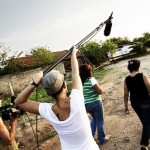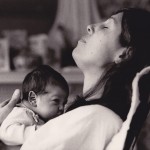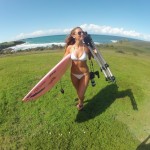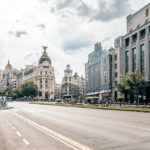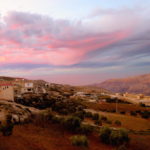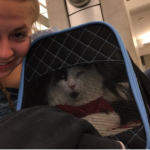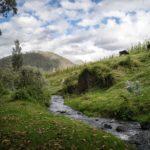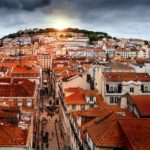Transforming a Powerful Trip into Film: A Conversation with Actress Daniella Rabbani
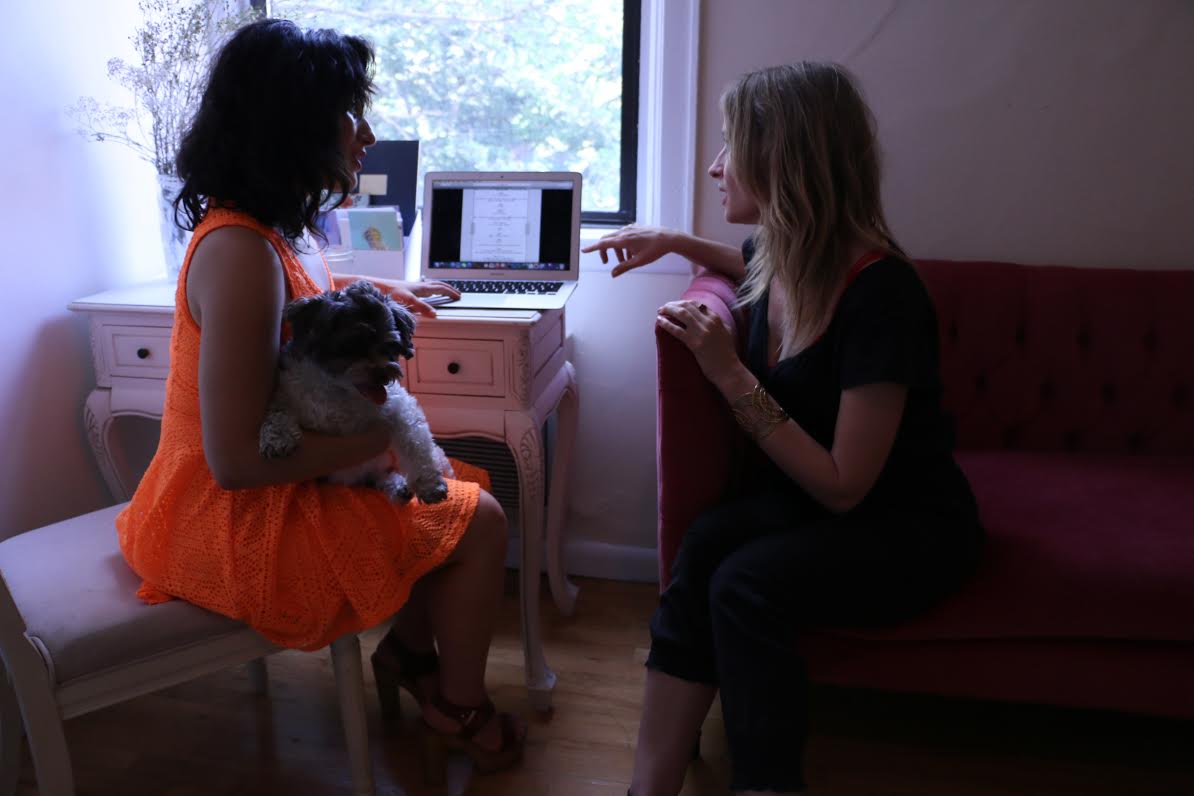
Many know of actress Daniella Rabbani from her starring roles in The Americans and Be Here Now-ish. You might have come across a review of her work in the the New York Times “The sassy and raspy-voiced Daniella Rabbani will leave you twirling in the streets.” But we met up with Daniella to learn about a different side of her. A few weeks ago, we met at Ellary’s Greens in NYC to learn about her new film, OMA, inspired by a trip she took when she was 16 years old. Here’s a glimpse into our convo:
Daniella, we were absolutely awed when we heard about your upcoming film. Would you share with Pink Pangea readers a bit about the project?
Thank you so much for saying that and for introducing your incredible community to my work. I’m really grateful to be a part of the Pink Pangea world of adventurers and truth seekers. OMA is a short narrative film based on my experience as a third generation Holocaust survivor (meaning, my grandparents survived the Holocaust).
When did you get started on the film? Did something happen to spark the idea?
This has been “in development” for as long as I can remember. Maybe longer than I can remember. I was raised with the understanding that our generation would be the last to know the people who went through the Holocaust and came out the other side. What was challenging for me was that although I took this responsibility seriously, I also had grandparents who didn’t really talk about their experiences. When I was 16 I travelled to Poland and Prague to visit the camps and learn more about this history. Then in 2013 I was invited to sing at the National Jewish Theater in Warsaw, Poland. It was an overwhelming experience to say the least. I sang songs in Yiddish to hundred of Poles–none of them Jews. When the festival ended, I had the opportunity to visit Auschwitz again–this time as an adult. I knew as an artist and a storyteller that I needed to give voice to MY experience and to the experience of many of my peers whose grandparents survived.
What has been the most rewarding part of creating the film so far?
Digging deep like this, being raw and honest in the work and with collaborators isn’t easy. But the most rewarding part about the entire experience for me has been the support of people like you. People like my writer, Melissa Jane Osbourn. My casting director, Freya Krasnow. My executive producer, Deborah Kampmeier. The support and love I feel from these incredibly talented, passionate, savvy female artists is not only humbling but heartening. Not only that, but I’ve been surprised by my filmmaker community who, Jewish or not, female or not, resonate with the film’s message of human connection and the desire to know ourselves and our families. I wasn’t expecting that but as Melissa always reminds me, “We all have family secrets.”
Was there any point you thought about giving up on the film? How did you decide to keep going?
OMG! Haha! I wish I had a choice! This is not easy stuff but I really feel like I’m called to tell this story. I feel a very strong need to share this story with as large an audience as possible because I believe that the more personal art is, the more universal.
One subtle theme that runs throughout this film is the importance of what is left unsaid. It’s extremely powerful. What provoked you to go in that direction?
Ya know, there are a lot of beautiful, epic Holocaust films out there. And there are countless testimonials of survivors who, thank heavens, had the courage to share their stories so the world will never forget. I felt really strongly from the beginning that I had to be as honest about my experience as possible. My grandparents never went into detail about their lives. Not even when asked. It seemed to me that, unlike our current generation, they just didn’t think they were that special. And even though they never spoke about it, my grandparents’ trauma has had a profound affect on our family and more specifically, on me. I am interested in this idea not only in regards to the Holocaust but in all aspects of life. Silence versus communication. What is mine? What is theirs? What is our story?
What do you think holds women back from taking on projects that they are passionate about? Do you have have any advice for anyone who is thinking about getting started on a similar venture?
Let me preface by saying, I don’t have it all figured out but I do have some philosophies. One of the most exciting things about being women is that we’re really good at multitasking. Many of us are holding down jobs, raising children, engaging in meaningful relationships, active in our communities… The list goes on. I think as women, sometimes the ability to do lots of meaningful things can often leave us with no more time to devote to our passion projects. We’re taught at such a young age to be nice and pretty and I’ll tell ya, those are tall orders that take up lots of time in our day. I think it’s important to say the dreaded “no” sometimes in order to say a big “yes” to what really lights your fire.
What’s next for you?
OMA is just in its beginning stages. She’s my baby right now and needs round-the-clock care. It take a village, as they say, and nothing could be truer for an independent-film-baby. We’re launching our Seed & Spark fundraising campaign next month and hoping to rally support for the film. Getting the word out is a big part of it so I’m really grateful for you and the whole Pink Pangea team. Thank you so much.
For more information about Daniella and her new film, please check out daniellarabbani.com, @omathemovie and #omathemovingpicture.

